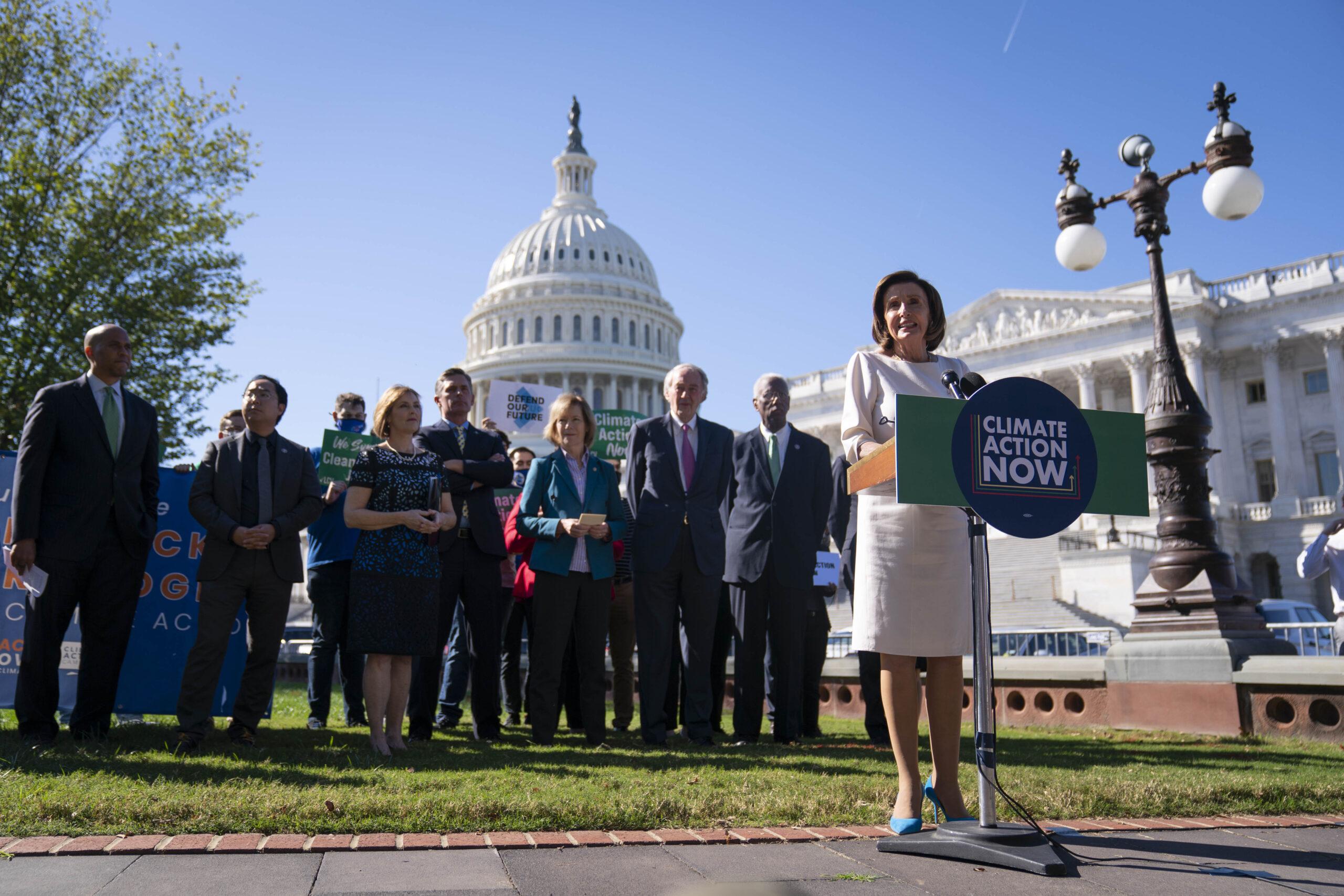
“Every few years, American politics astonishes you.” That’s how The Atlantic journalist Robinson Meyer began his report on the Democrats’ new climate deal, which would invest record-breaking sums in clean energy infrastructure. Yes, this is still just a bill. It could be revised. But in a summer of climate doom—record-breaking heat, droughts, fires in Europe—we are looking at an extraordinary leap forward. So what’s in the deal? What would it actually do? And how could it realistically transform the world? Today’s guest is Robinson Meyer, and in this mini episode we break down the bill and explain why it is, to quote the president, a big f---ing deal.
If you have questions, observations, or ideas for future episodes, email us at PlainEnglish@Spotify.com. You can find us on TikTok at www.tiktok.com/@plainenglish_.
Thompson and Meyer discuss the significance of the proposed climate bill and the tax credits that are its centerpiece.
Derek Thompson: Excellent. Before we get into details, I want to just set up the context here. Joe Manchin has been bête noire of liberal environmentalists for many, many years. America, in general, has been a laggard in national clean energy policy for many, many years. So, for Joe Manchin to be the linchpin of a major national clean energy legislation is pretty shocking to a lot of people. I know that one of those people is you. You were up until about 4 a.m. last night pouring over this thing to absorb all the details. So, before we get into the details, just tell me, to start, to quote a big president, how much of a big f-ing deal is this?
Robinson Meyer: It is quite a big f-ing deal. I mean, I think it is. ... The bill, if it passes, and we have to attach that if only because climate people, we’ve been dragged, we’ve been tricked so many times. You have to protect that core part of yourselves and say, if it passes. If it passes, it would be an absolute landmark. It would be the largest investment that the United States has ever made in fighting climate change. It would be the largest investment that any Western country has ever made in fighting climate change, and arguably the largest investment ever from any country in fighting climate change, but it’s a little hard to say with how China and India do their accounting. However, it is a big, big f-ing deal. I mean, it’s the kind of thing where yesterday, even before it came out, I got a call. Or right after it came out, but when we didn’t have any details yet, I got a call from Sam Ricketts, who used to advise Governor Jay Inslee of Washington, who ran an entire climate-focused presidential campaign on climate change. This was Inslee’s climate advisor.
And he picked up the phone and just starts talking, and is like, “This is it. We did it. This is the real victory.” He said, “I struggle to find enough superlatives to describe this deal.” It is the kind of ... If it passes—again, if it passes—it would be ... It’s the kind of victory that people just call you up on the phone and want to immediately start being effusive over.
Thompson: All right. Well, now I have to imagine that a lot of people’s appetites have been whetted to figure out exactly what is in this deal that is making all these environmentalists salivate. Let’s go through three major components: no. 1, incentives for utilities and developers. What is in the bill? What does it look like? And tell me why it’s so important.
Meyer: Yeah, absolutely. So, I would say the centerpiece of this bill from a climate perspective is the set of tax credits that go to utilities, developers, states, and cities, anyone who produces electricity and sells it to Americans on the grid. And what those tax credits do is they encourage the production, they encourage investment in and the production of zero carbon electricity. And I think what’s quite ... there’s two things I would really call out with these tax credits that are important. The first is that, I think listeners will recognize we’ve had tax credits like this for some time. They’ve heard about maybe a solar tax credit or a wind tax credit. If they’re really wonky, an advanced nuclear tax credit, that goes back to the Bush administration. But what all those tax credits had in common was that they called out specific technologies.
The new set of policy which is in this bill applies to any zero carbon electricity generation or production technology, wind, solar, geothermal, advanced nuclear, carbon capture, burning I don’t know, something renewable that we haven’t even thought of yet. It applies to any of those. And it says, basically, whatever is the most cost-efficient way to produce electricity in your area, we are going to either help you invest in it or actually subsidize the production of that electricity, whatever is the most efficient way for you. The other thing that’s really important about these tax credits, compared to previous policies, is that every previous subsidy we’ve had like this has phased out in five years or six years or two years, and Congress has to get back together and extend them, and it’s a whole process. These tax credits extend to at least 2032. So, these are permanent technology neutral tax credits that are meant to drive the carbon out of the power sector.
This excerpt was lightly edited for clarity.
Host: Derek Thompson
Guest: Robinson Meyer
Producer: Devon Manze
Subscribe: Spotify

